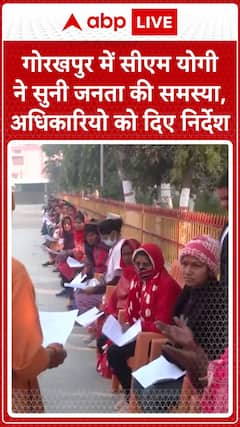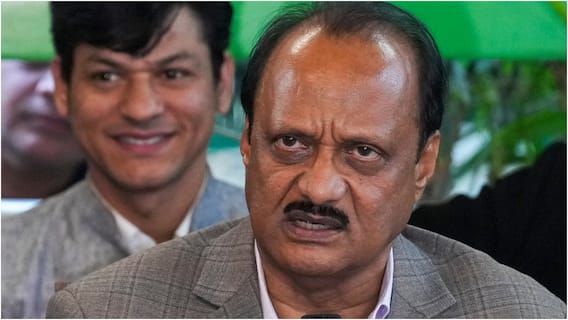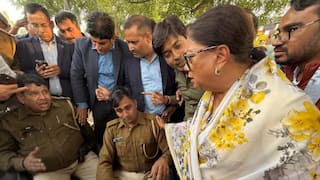Explorer
Advertisement
Section 377 decriminalised: A HISTORIC decision
The Supreme Court on Thursday pronounced its much-awaited verdict and decriminalised section 377. The order came after a number of petitions seeking decriminalisation of the 158-year-old law which earlier criminalised consensual gay sex.
The matter was heard by a five-judge constitution bench headed by Chief Justice Dipak Misra; who had reserved its verdict on July 17 after hearing various stakeholders for four days, including gay rights activists.
While hearing the case, Chief Justice Dipak Misra observed that "No one can escape from their individualism. Society is now better for individualism.
In the present case, our deliberations will be on various spectrums".
Here’s all you need to know about SC verdict:
The apex court had asserted that courts cannot wait for a "majoritarian government" to decide on enacting, amending or striking down a law if it violates fundamental rights. It had made clear that it may not strike down the law completely and deal with it to the extent it relates to consensual acts between two adults.
"If Section 377 of the IPC goes away entirely, there will be anarchy. We are solely on consensual acts between man-man, man-woman. Consent is the fulcrum here. You cannot impose your sexual orientation on others without their consent," the top court had said while allaying apprehensions of those opposed to the decriminalisation of the penal provision.
Section 377 refers to 'unnatural offences' and says whoever voluntarily has carnal intercourse against the order of nature with any man, woman or animal, shall be punished with imprisonment for life, or with imprisonment of either description for a term which may extend to 10 years, and shall also be liable to pay a fine.
The Centre, which had initially sought adjournment for filing its response to the petitions, had later left to the wisdom of the court the issue of legality of the penal provision on the aspects of criminalising consensual unnatural sex between two consenting adults.
The issue was first raised by NGO Naaz Foundation, which had in 2001 approached the Delhi High Court which had in 2009 decriminalised sex between consenting adults of the same gender by holding the penal provision as "illegal".This high court judgement was overturned in 2013 by the apex court which also dismissed the review plea against which the curative petitions were filed which are pending.
The matter was heard by a five-judge constitution bench headed by Chief Justice Dipak Misra; who had reserved its verdict on July 17 after hearing various stakeholders for four days, including gay rights activists.
While hearing the case, Chief Justice Dipak Misra observed that "No one can escape from their individualism. Society is now better for individualism.
In the present case, our deliberations will be on various spectrums".
Here’s all you need to know about SC verdict:
The apex court had asserted that courts cannot wait for a "majoritarian government" to decide on enacting, amending or striking down a law if it violates fundamental rights. It had made clear that it may not strike down the law completely and deal with it to the extent it relates to consensual acts between two adults.
"If Section 377 of the IPC goes away entirely, there will be anarchy. We are solely on consensual acts between man-man, man-woman. Consent is the fulcrum here. You cannot impose your sexual orientation on others without their consent," the top court had said while allaying apprehensions of those opposed to the decriminalisation of the penal provision.
Section 377 refers to 'unnatural offences' and says whoever voluntarily has carnal intercourse against the order of nature with any man, woman or animal, shall be punished with imprisonment for life, or with imprisonment of either description for a term which may extend to 10 years, and shall also be liable to pay a fine.
The Centre, which had initially sought adjournment for filing its response to the petitions, had later left to the wisdom of the court the issue of legality of the penal provision on the aspects of criminalising consensual unnatural sex between two consenting adults.
The issue was first raised by NGO Naaz Foundation, which had in 2001 approached the Delhi High Court which had in 2009 decriminalised sex between consenting adults of the same gender by holding the penal provision as "illegal".This high court judgement was overturned in 2013 by the apex court which also dismissed the review plea against which the curative petitions were filed which are pending.
India

Woman Dies in Mohali Building Collapse, Rescue Operations Underway

Huge Black Money Seized in Madhya Pradesh Lokayukta Raids, Over Rs 7.98 Crore Discovered

Congress Led Protest March Gains Momentum, Injured Protesters Shifted to Normal Ward

Tragic Building Collapse in Mohali: Woman Killed, Many Trapped; Police File Homicide Case

PM Modi’s Kuwait Visit: Day 2 Focuses on Security and Trade Talks
View More
Advertisement
Advertisement
Advertisement
Top Headlines
South Cinema
Cities
India
Cities
Advertisement
Trending News


Sagarneel SinhaSagarneel Sinha
Opinion









































